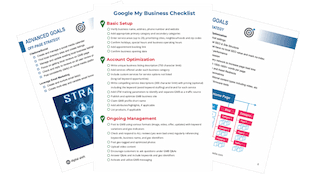CAN-SPAM
What is Can-Spam?
An act passed in 2003 to control and prevent the sending of unsolicited emails promoting any product or service. Can-Spam stands for Controlling the Assault of Non-Solicited Pornography And Marketing and is enforced by the FTC (Federal Trade Commission). Can-Spam is actually a law to help curb the sending of commercial email and messages and also gives recipients the right take themselves off the business’ mailing list. It does not just apply to bulk email but includes all commercial messages defined as “any electronic mail message with the primary purpose of which is the commercial advertisement or promotion of a commercial product or service.” Furthermore, the law makes no exception in business to business email. This means businesses have to be extremely careful about what they send other businesses as the penalties are severe. One exception is transactional, and relationship messages are not deemed Spam mail.
Enforcement Penalties and Can-Spam Requirements?
For every email sent that violates the Can Spam act, the FTC will fine the company $16,000, therefore non-compliance can be extremely costly! Imagine you sent out 500 non-compliance emails, your company will be fined $8,000,000. Luckily, Can-Spam requirements are not complicated:
- Don’t use false or misleading information
- Don’t use deceptive subject lines
- Identify the message as an advertisement
- Tell recipients your location
- Tell recipients how to opt-out of receiving future emails from you
- Honor opt-out requests promptly
- Monitor what others are doing on your behalf!
If these simple requirements are met, then your company will have nothing to fear. For more information about Can-Spam guidelines and compliance details visit the FTC government website.
What Does it Mean For Businesses Today?
It means business emails will have to comply in three areas; content, sending behavior, and unsubscribe. If businesses include valid postal addresses in every email, provide clear and obvious opt-out options that are honored quickly, and use clear, concise language, then they should not have a problem avoiding Can-Spam violations and costly fines.
Frequently Asked Can-Spam Questions on the FTC Website
Question: How do I know if the Can-Spam Act covers email my business is sending?
Answer: What matters is the “primary purpose” of the message. To determine the primary purpose, remember that an email can contain three different types of information:
- Commercial content – which advertises or promotes a commercial product or service, including content on a website operated for a commercial purpose;
- Transactional or relationship content – which facilitates an already agreed-upon transaction or updates a customer about an ongoing transaction; and
- Other content – which is neither commercial nor transactional or relationship.
If the message contains only commercial content, its primary purpose is commercial and it must comply with the requirements of CAN-SPAM. If it contains only transactional or relationship content, its primary purpose is transactional or relationship. In that case, it may not contain false or misleading routing information but is otherwise exempt from most provisions of the CAN-SPAM Act.
Question: How do I know if what I am sending is a transactional or relationship message?
Answer: The primary purpose of an email is transactional or relationship if it consists only of content that:
- facilitates or confirms a commercial transaction that the recipient already has agreed to;
- gives warranty, recall, safety, or security information about a product or service;
- gives information about a change in terms or features or account balance information regarding a membership, subscription, account, loan or other ongoing commercial relationship;
- provides information about an employment relationship or employee benefits; or
- delivers goods or services as part of a transaction that the recipient already has agreed to.
For more information or similar questions visit the FTC website or contact someone from the FTC before sending out any potentially expensive emails.

